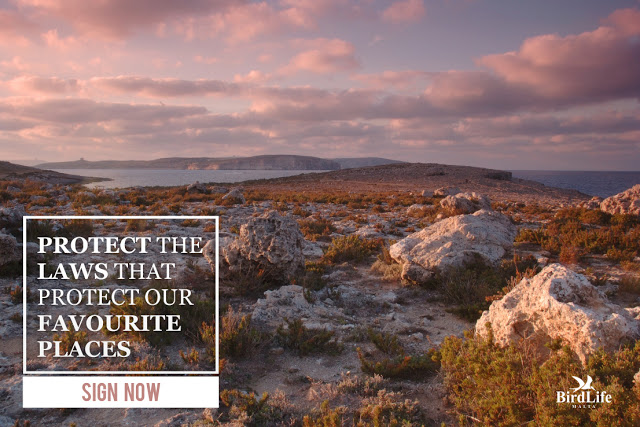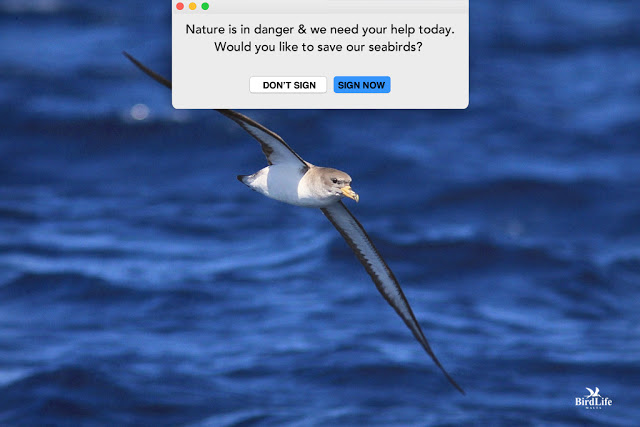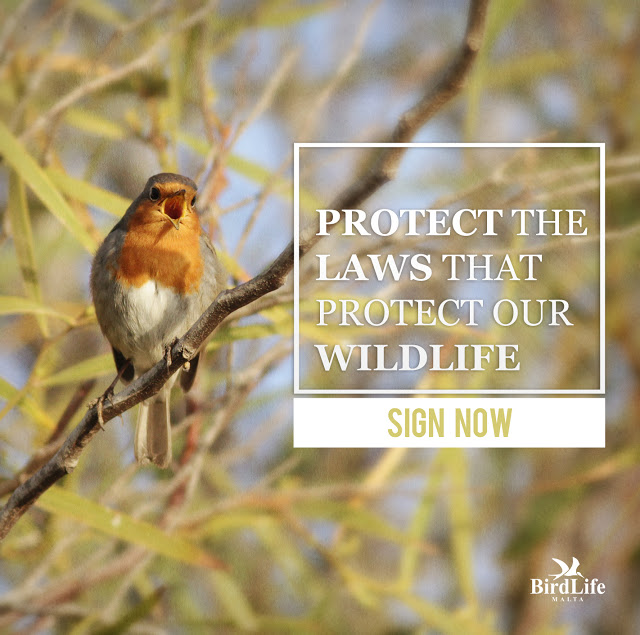By Ketija Riteniece
Within two and a half months, the Nature Alert campaign has created the biggest response to an EU public consultation ever. It’s no surprise, as the future of our nature is in question this time. And the ‘protection of European nature’ that Nature Alert stands for is not about some faraway forest and its deer in, let’s say, Finland, it’s very much about the local Maltese nature too: about our favourite protected places, birds that breed here or rest on our islands on their migration, magnificent plants or the underwater world.
After joining the European Union and implementing the Birds Directive and the Habitats Directive (both known as Nature Directives), Malta has taken lots of positive steps, although they might not seem obvious.

Before adoption of these Directives, only three sites could be regarded as nature reserves according to national legislation. Now, 14 % of Malta’s land is protected within the Natura 2000 network. This includes such sites as Buskett, Comino, Rdum tal-Madonna, Dingli cliffs, Ramla Bay, Ta’ Cenc, Għajn Tuffieħa, Filfla and many others. They are not just great places for people to enjoy nature, but also invaluable for the wildlife species and biodiversity. The Nature Directives are the legal backbone to protect these areas: these laws require restoring and managing the natural surroundings and not letting to turn them into concrete deserts because they are vital to plants and animals. For example, most of our coastal cliffs are Natura 2000 sites because they are important nesting areas for seabirds.
Seabirds are worth mentioning with regards the Nature Directives, as they might be one of the biggest winners from their implementation in Malta. Nature protection also needs money, of course, and thanks to EU LIFE+ funding (created for implementation of the Nature Directives as one of the objectives) two long term seabird projects in Malta have thrived. During these projects BirdLife Malta monitored Yelkouan Shearwaters, Scopoli’s Shearwaters and Storm Petrels, finding the areas that are most important to these birds. These areas then can be protected and problems such as bycatch, development, and light pollution are addressed. There is still a lot to do, but strong nature protection laws are needed for this work.
It’s true that most of the bird species protected by the Birds Directive were protected by local legislation long before the 2004. But, let’s be honest, protection ‘on paper’ is not really helping nature, if these laws are not properly implemented. Although hunting and trapping in Malta is still not in line with sustainability requirements well accepted across EU, the Nature Directives have had a crucial role in developing more sustainable hunting practices than about 10 years ago. Shortening of hunting seasons, better monitoring, enforcement and increasing public awareness are remarkable improvements. Without the growing public interest and the EU’s action to ensure the Directives are implemented properly, there might be no such controversy and discussion about spring hunting and trapping. The ongoing fight and Malta’s new responsibilities before the EU raise the hope that one day birds here will not be trapped or killed on their way back to breeding grounds.
Better implementation of the Nature Directives and more intensive action from the EU itself is what is needed for European nature right now. The Directives do not need to be changed and weakened, as they have proved their value with many success stories of species recovery and habitat restoration. But the European Commission is preparing to review them this year within a so called fitness-check to see if these laws still serve their original purpose effectively. To do that, theEC is asking for its citizens opinions through a public consultation. Undoubtedly, there is a growing pressure to weaken EU nature laws for business, development, agricultural and hunting interests. We, the Nature Alert team all across Europe, have prepared answers that we believe the EC should hear to their questions and take into account. Therefore it takes just seconds to sign your name under these answers. We believe these are the answers nature would have given, if it was able to speak. Please, speak up for nature, secure the laws that protect wildlife and its homes, and sign at naturealert.eu! With only three days left and more than 449,000 signatures collected, can we reach half a million for our nature?


